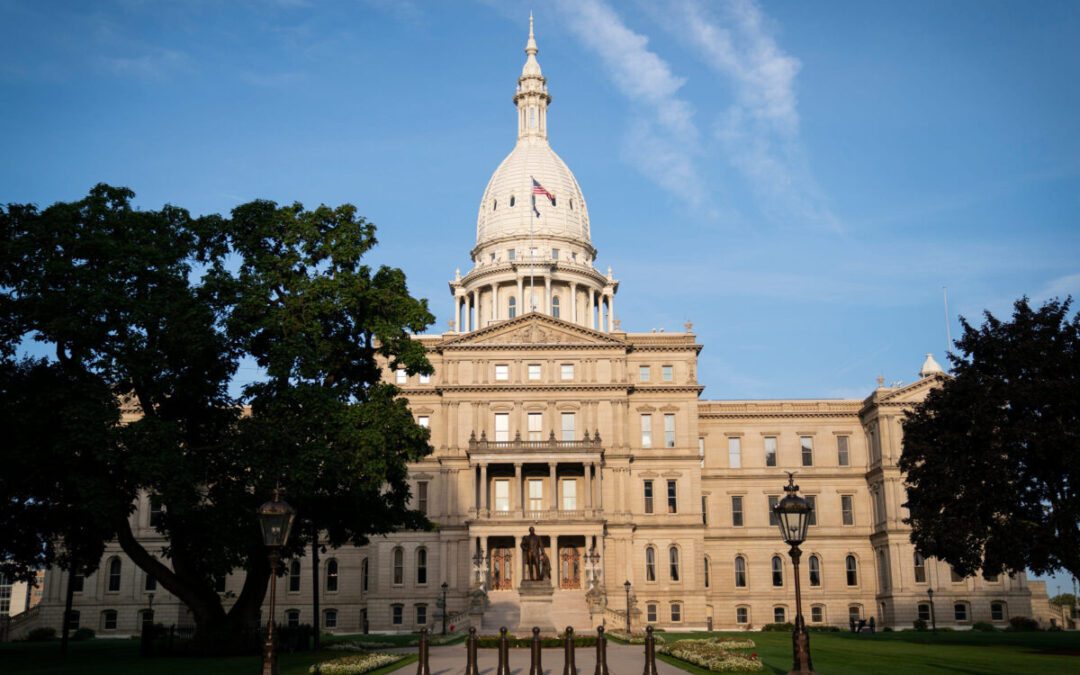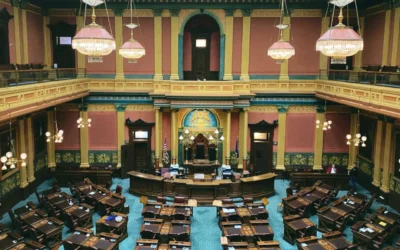
BY JON KING, MICHIGAN ADVANCE
MICHIGAN—The US Supreme Court is now being asked to intervene in the process of redrawing seven state House of Representatives districts, which include the Grosse Pointe and St. Clair Shores suburbs, Downriver Detroit and parts of Oakland and Macomb counties.
In a brief filed Wednesday with the nation’s highest court, Michigan Attorney General Dana Nessel, representing the interests of Secretary of State Jocelyn Benson, warned about the potential for voters to be “whipsawed” if the new district boundaries go into effect this year as currently planned.
“The Court should thus grant a stay of the district court’s injunction to the extent it requires the Secretary to implement new district lines in time for the 2024 election cycle,” stated the brief. “The Secretary does not oppose the request for a stay of the remedial proceedings requiring the Commission to draw new districts. Simply, the Secretary’s primary concern is the orderly administration of the August 2024 primary election.”
The candidate filing deadline for the August primary is April 23.
The Michigan Independent Citizen Redistricting Commission (MICRC) began the redrawing process after a three-judge panel ruled that the MICRC had employed racial gerrymandering in its initial maps of Detroit and its surrounding suburbs.
The commission was then ordered to produce new, race-blind maps in less than a month’s time, with that effort getting underway on Tuesday as commissioners work against a court-imposed deadline set for Feb. 2.
The issue was appealed to the U.S. Supreme Court after a request by the MICRC for an injunction was denied by the federal district court.
In an objection to the brief requesting delayed implementation of the new districts, the attorneys representing the plaintiffs, 19 African-American Detroiters who live in seven Michigan House and six state Senate districts that each include a portion of Detroit, say the rights of voters in the affected districts demand immediate attention.
“There are many redistricting cases that present important issues of law that only this Court can resolve. This fact-bound case is not one of them,” read the objection. “The Commission made a grievous error by using racial targets to draw down Detroit-area districts to never-before-seen BVAP (black voting- age population) levels without a basis in election data to do so. Black voters in Detroit have already lost substantial representation in the Michigan Legislature, and that unconstitutional deprivation will continue until remedial maps are in place.”
However, it is precisely the concern that voters will be short changed if the process is rushed that the attorneys for Benson say they are concerned about.
“It is the unknown potential for error and voter confusion in the impacted districts that compels the Secretary’s conclusion that a stay of the injunction is the wiser course of action—that, and the possibility that this Court may reverse the district court, thereby negating any need to redraw the districts in the first place,” they said.
The MICRC was created by a 2018 constitutional amendment approved by voters. The 13-member body has four Republicans, four Democrats and five independents and drew the maps used for the first time during the 2022 election.
Previously, the Legislature would design new districts every 10 years and the governor would sign off, presenting an advantage to whichever political party was in power at the time.
READ MORE: What’s the deal with Michigan’s legislative maps? And how do we fix them?
This coverage was republished from Michigan Advance pursuant to a Creative Commons license.

Michigan Senate passes petition collection, election disinformation reforms
BY BEN SOLIS, MICHIGAN ADVANCE MICHIGAN—The fight against election disinformation and changes to Michigan’s petition circulation process cleared the...

Michigan OKs landmark regulations that push up-front costs to data centers
Michigan regulators on Thursday adopted landmark standards for the booming data center industry with a plan they say tries to protect residents from...

Q&A: Why this 29-year-old Detroiter thinks he can make Michigan government work again
Democratic state Senate candidate Justin Onwenu says he wants to rebuild trust, invest in neighborhoods, and help deliver a new generation of...

Michigan state budget 2026: 7 things to know about the bills
LANSING — Lawmakers on Oct. 2 and Oct. 3 voted to approve a 2026 budget plan that makes cuts to many state agencies while boosting funding...

Michigan Legislature passes eight day continuation budget, votes expected Thursday
BY BEN SOLIS AND KYLE DAVIDSON, MICHIGAN ADVANCE LANSING—In the thick of a government shutdown that lasted just one hour, the Michigan House and...




